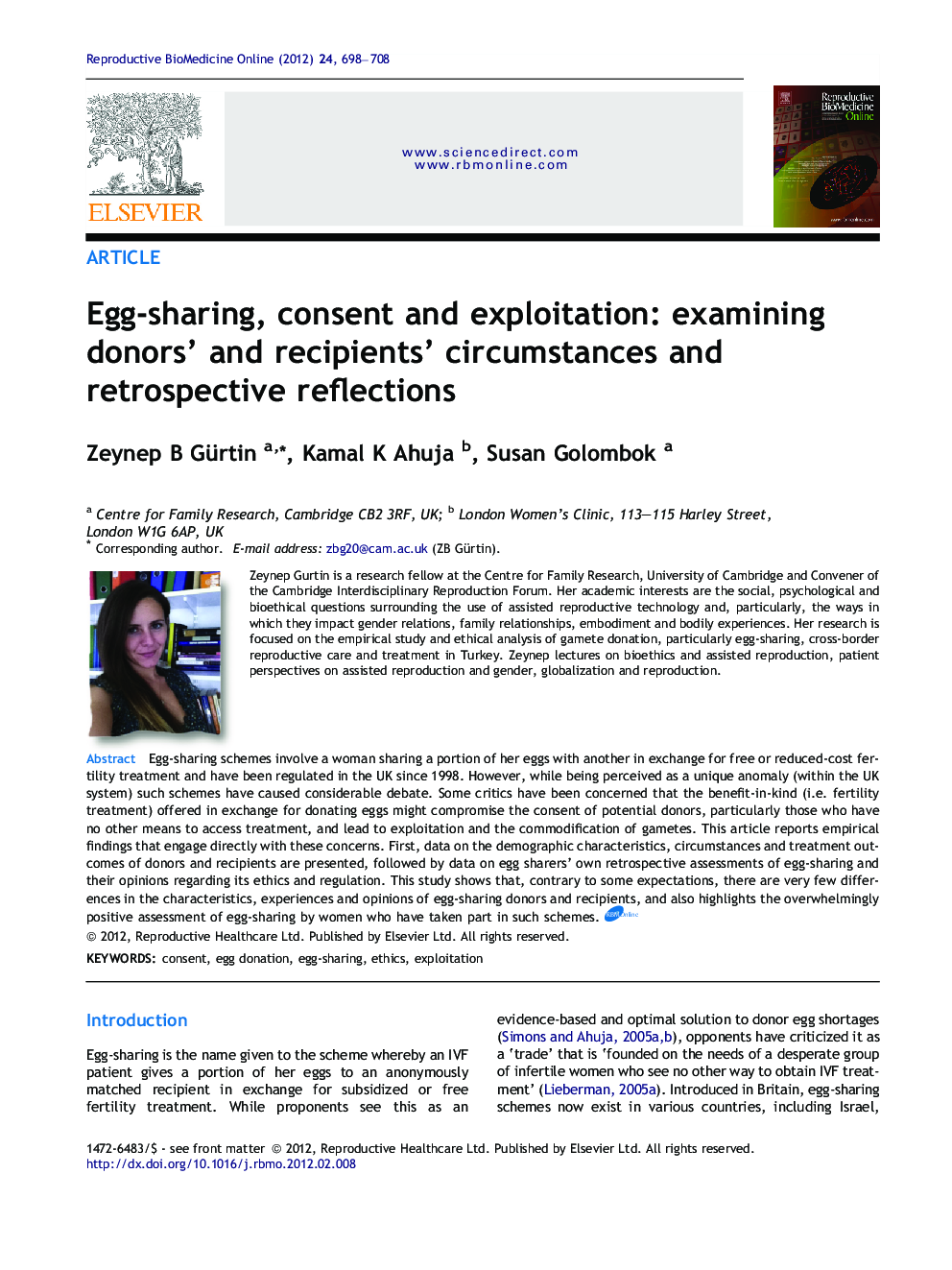| کد مقاله | کد نشریه | سال انتشار | مقاله انگلیسی | نسخه تمام متن |
|---|---|---|---|---|
| 3970993 | 1256744 | 2012 | 11 صفحه PDF | دانلود رایگان |

Egg-sharing schemes involve a woman sharing a portion of her eggs with another in exchange for free or reduced-cost fertility treatment and have been regulated in the UK since 1998. However, while being perceived as a unique anomaly (within the UK system) such schemes have caused considerable debate. Some critics have been concerned that the benefit-in-kind (i.e. fertility treatment) offered in exchange for donating eggs might compromise the consent of potential donors, particularly those who have no other means to access treatment, and lead to exploitation and the commodification of gametes. This article reports empirical findings that engage directly with these concerns. First, data on the demographic characteristics, circumstances and treatment outcomes of donors and recipients are presented, followed by data on egg sharers’ own retrospective assessments of egg-sharing and their opinions regarding its ethics and regulation. This study shows that, contrary to some expectations, there are very few differences in the characteristics, experiences and opinions of egg-sharing donors and recipients, and also highlights the overwhelmingly positive assessment of egg-sharing by women who have taken part in such schemes.Egg-sharing schemes involve a woman sharing a portion of her eggs with another in exchange for free or reduced-cost fertility treatment and have been regulated in the UK since 1998. However, while being perceived as a unique anomaly (within the UK system) such schemes have caused considerable debate. Some critics have been concerned that the benefit-in-kind (i.e. fertility treatment) offered in exchange for donating eggs might compromise the consent of potential donors, particularly those who have no other means to access treatment, and lead to exploitation and the commodification of gametes. This article reports empirical findings that engage directly with these concerns. First, data on the demographic characteristics, circumstances and treatment outcomes of donors and recipients are presented, followed by data on egg sharers’ own retrospective assessments of egg-sharing and their opinions regarding its ethics and regulation. This study shows that contrary to some expectations, there are very few differences in the characteristics, experiences, and opinions of egg-sharing donors and recipients, and highlights the overwhelmingly positive assessment of egg-sharing by women who have taken part in such schemes.
Journal: Reproductive BioMedicine Online - Volume 24, Issue 7, June 2012, Pages 698–708